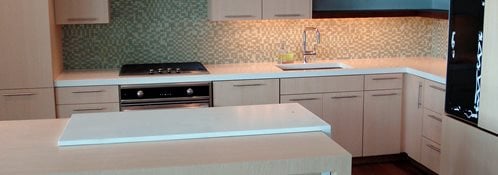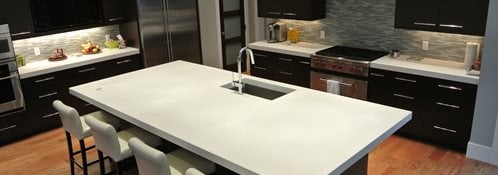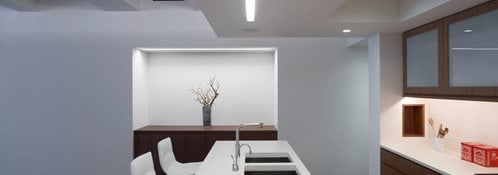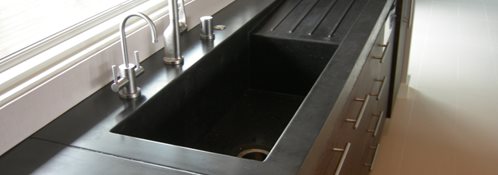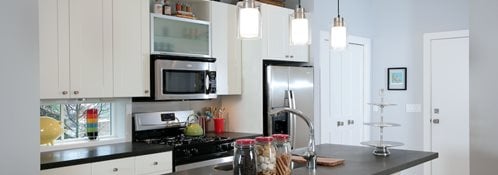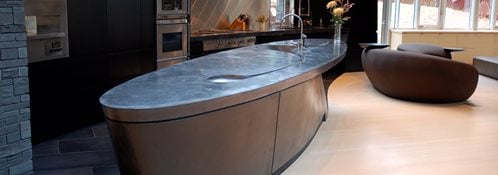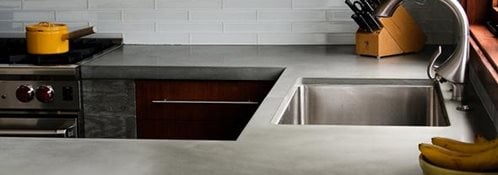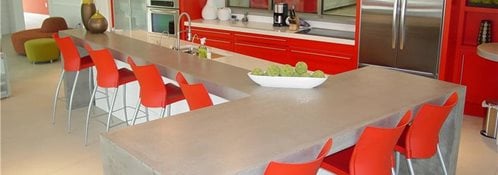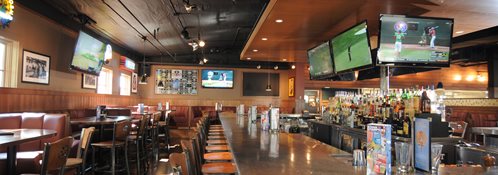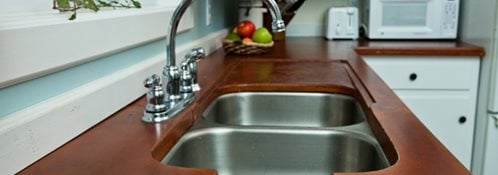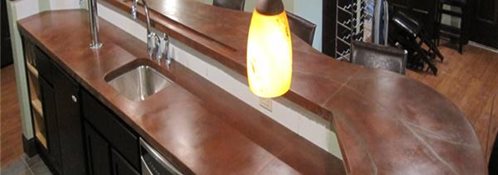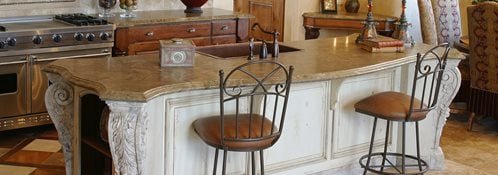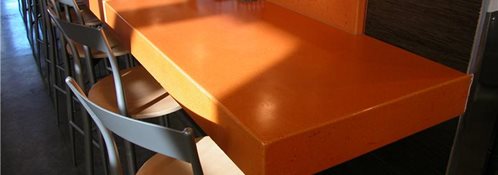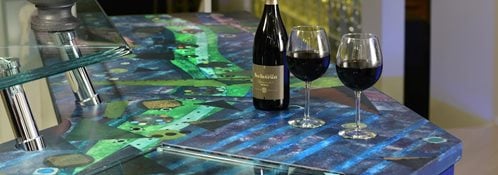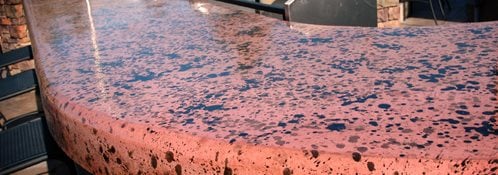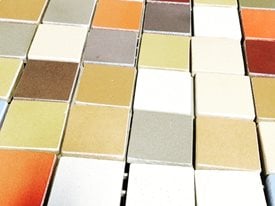
Concrete countertop color samples. Buddy Rhodes Concrete Products in Macungie, PA.
WHAT COLORS ARE AVAILABLE FOR CONCRETE COUNTERTOPS?
When it comes to color options, concrete offers nearly limitless possibilities—shades of white, gray, brown, red, blue, yellow, green, orange, black and more can be created. So, if you’re looking for something to add drama to your home or want a countertop that complements your restaurant’s theme then look no further.
Find a contractor specializing in concrete countertops near me.
HOW ARE CONCRETE COUNTERTOPS COLORED?
Color can be applied throughout the entire mix with integral pigments, or applied to the surface of cured concrete with stains or dyes. There are different brands of pigments, stains, and aggregate colors, so concrete countertops will always be unique.
- Integral pigments offer the widest range of colors and are suitable for indoor and outdoor use. Pigment is blended into the mix, imparting color throughout the entire countertop. Nearly any color can be achieved by blending pigments together, allowing skilled craftsmen to color match, although this is not an exact science. In most cases, custom colors or color matching will be more expensive than standard colors. Pigments are stable colors and offer consistent and dependable results as long as measurements are precise. Since they are mixed throughout the entire batch of concrete, a substantial amount of product is required.
- Acid stains are applied to the surface of cured concrete. Stains are available in a limited range of colors, but can be mixed and layered to expand the possibilities. Acid stains form their color through a chemical reaction with the concrete. Stains are best applied by professionals, because the results can be varied and unpredictable due to their reactive nature. Since stains are applied only to the surface of the countertop, repeated abrasion can wear down the color, but sealers can prolong the life of the color. Acid stains are UV stable and can be used on indoor or outdoor countertops.
- Dyes are available in a wider range of colors than stains and can be mixed and layered creating numerous possibilities. Dyes are applied to the surface of cured concrete and can also be used to enrich surfaces that are already stained or integrally pigmented. Water- or solvent-based formulas are available. A UV sealer should be applied to protect the color, as not all dyes are UV stable. As with stains, dyes can be tricky to apply. Both dyes and stains can be used in specific areas as accent colors or with stencils to create designs. Dyes and stains can be more cost effective than integral pigments, as a little product can go a long way.
Whether your countertop is integrally pigmented, stained or dyed, make sure it is sealed well so food and beverages won’t alter the color.



